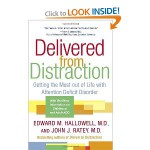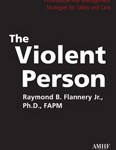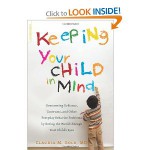For Epilepsy Awareness Month, do check out the great Dr. Oliver Sacks, Hallucinations. Sacks discusses the more unusual aspects of this condition (and others) as it affects behavior, and as neurology rubs against the field of psychiatry and even that of theology. You will not be disappointed. Sacks delves into the desperately misunderstood and stigmatized […]
By:
Evander Lomke
“Asian Mental Health” is a timely and important article by Stanley Sue and his colleagues, just published in the October 2012 edition of American Psychologist. This is one of three articles recently written that address mental health disparities occurring in cultural groups. Ten years ago the U.S. Surgeon General wrote a report Mental Health: Culture, […]
By:
William Van Ornum, Ph.D.
American Mental Health Foundation Annual Report November 1, 2011, to October 31, 2012 This is the second Annual Report on The American Mental Health Foundation (AMHF), a research organization founded in 1924, incorporated in New York State December 31, 1954. (Click here for the first annual report, November 2011.) Vision Statement: on the homepage of […]
By:
Evander Lomke
Susannah Wood, Arie Greenleaf, and Lisa Thompson-Gillespie, in the August 2012 issue of Counseling Today (a publication of the American Counseling Association), cite Military Officer magazine: there are two-million children in United States military families today. Studies conducted by the National Military Family Association offers this information: students from military households encounter many challenges but […]
By:
William Van Ornum, Ph.D.

Edward Hallowell and John Ratey have published a follow-up to their successful book Driven to Distraction. On a hopeful note, it is titled Delivered from Distraction. The first book was written in the 1990s. It contains much good advice on ADHD: diagnosis, medications, telling it apart from other conditions as well as finding it in […]
By:
William Van Ornum, Ph.D.

On June 22 it was announced that Judith Wallerstein, 90, had died. Wallerstein is known for a 25-year longitudinal study about the effects of divorce on children. Her study examined the psychological impact of divorce on children, and her scientific findings cautioned against the too-ready “advice” of many mental-health professionals that divorce could be a […]
By:
William Van Ornum, Ph.D.

Too many times we view medication and psychological therapies as either/or treatments. Many times people will try to avoid any medication for even a severe mental health problem. Their reasons are always worth noting: perhaps there is a realistic fear of side effects, or a desire to work things out in a trusting relationship. Perhaps […]
By:
William Van Ornum, Ph.D.

Part 1 of this essay examined the general nature of violence in the workplace. It noted the major types of crimes in the workplace, the various types of patient assailants, the theories that seek to explain such violent behavior, and the various physical and psychological impacts such violence has on staff victims. Part 2 examines […]
By:
Dr. Raymond B. Flannery Jr.

In Men In Black III, Tommy Lee Jones and Will Smith, have returned to help police the Earth from what they call invading life forms that represent “the scum of the universe.” No spoiler here–but it’s a must-see film if you want to learn more about the dynamics of the Agent J-Agent K relationship. Once […]
By:
William Van Ornum, Ph.D.

In yesterday’s blog I noted the level of professionalism and service that was accorded to veterans in the VA system after World War II. My grandfather, a World War II vet, received one of the earliest heart pacemakers as well as top-notch cardiac care, all at no cost (although one might view the treatment as […]
By:
William Van Ornum, Ph.D.
The alarm clock goes off. You are up and about and, in time, you make your way to work. As you enter your worksite, you think: another routine day at work. But what if it were not a routine day? What if today you became a victim of violence in the workplace? It could happen […]
By:
Dr. Raymond B. Flannery Jr.

A fan of comic books of old, both DC and MARVEL—I recently saw the movie The Avengers. I was hoping for a respite from all the daily stresses, an immersion in a world of fantasy where good might overcome evil. This was not what occurred. The story line here is how the earth is being […]
By:
William Van Ornum, Ph.D.
“Are you sure?” He hadn’t slept well last night. “Of course, I’m sure. You know the secret and they want you dead. Don’t you see? It’s a plot to kill you. You must get them first.” “My knowing the hidden secret of Peterbus has been such a burden. No one believes me.” “Wrong. They all […]
By:
Dr. Raymond B. Flannery Jr.

The Individuals with Disabilities Act (IDEA) lists conditions present in a child that can qualify him or her for special services in the educational system in preschool. These are: *Chromosomal Abnormalities (e.g., Down syndrome) *Syndromes (e.g., fetal alcohol syndrome) *Neuromuscular Disorder (e.g., cerebral palsy, spina bifida) *Central nervous system (CNS) abnormality (e.g., caused by bacterial/viral […]
By:
William Van Ornum, Ph.D.
The American Psychological Association has announced, in the January 2012 issue of American Psychologist, “Guidelines for Assessment of and Intervention With Persons of Disabilities.” This document lists twenty-two practice-guidelines for psychologists who work with persons displaying disabilities of various kinds. The task force for this report was chaired by Kurt F. Geisinger of the University […]
By:
William Van Ornum, Ph.D.

Finally Hollywood has discovered a good man with the right stuff to play the part of an incredibly loving father who happens to be a graduate of the Bronx High School of Science, loves baseball, and who has just a enough of Asperger’s syndrome qualities (a mere scent) to bond closely with his nine-year-old, a […]
By:
William Van Ornum, Ph.D.

In the recent yearly “Reports of the Association” issue of the American Psychologist (December 2011), the American Psychological Association announced “Practice Guidelines Regarding Psychologists’ Involvement in Pharmacological Issues.” This report notes several factors that will make psychologists more involved in medication-management issues. One survey noted that the number of Americans using antidepressants increased from 6.7 […]
By:
William Van Ornum, Ph.D.

Your hospital beeper summons you to the emergency room to assess the condition of an assaultive patient. Are you safe as you enter the room? In your private practice office, you are assessing a patient with a known history of organic impairment and impulsiveness. Have you thought to ensure your own safety? You are about […]
By:
Dr. Raymond B. Flannery Jr.

Pope Benedict VI decries the increasing commercialization of Christmas. Indeed, readers of this blog remember that among the films with a strong psychological component, listed in a recent posting, is Miracle on 34th Street. This 1947 classic, though “AMHF-blog worthy” being about the workings of a therapist and a HRD “personality tester,” primarily takes up […]
By:
Evander Lomke

In most cases psychiatric drugs are not valuable commodities on the street: antipsychotics and antidepressants with names such as Thorazine, Haldol, Resperidal, Tofranil, SSRIs, Wellbutrin, Abilify, Lithium, and others generally must build up a therapeutic dosage in the bloodstream to become effective. There is no immediate “rush” or feeling of euphoria. In acute-psychiatric illness, a […]
By:
William Van Ornum, Ph.D.

What are mental bears? A person who is asked NOT to think aloud about a white bear will more often than not mention this same white bear: at least once a minute. So “white bears” have come to mean all sorts of unwanted thoughts that cause annoyance to even extreme frustration to those who experience […]
By:
William Van Ornum, Ph.D.
American Mental Heath Foundation Annual Report November 1, 2010, to October 31, 2011 This is the first Annual Report on the American Mental Health Foundation, a research organization founded in 1924, incorporated in New York State in 1954. The new Vision Statement on the homepage of the Web site: Building a More Compassionate Society. The […]
By:
Evander Lomke

AMHF attended the 51st Annual Meeting of the New England Psychological Association (NEPA), held October 28-29 at Fairfield University in Fairfield, Connecticut. After a wonderful dinner, hosted by Drs. Robin Crabtree and Susan Franzosa, deans at Fairfield, participants heard child-development expert Dr. James Garbarino speak of “Children and the Dark Side of Human Experience: Confronting […]
By:
William Van Ornum, Ph.D.

Claudia M. Gold, MD, is a behavioral pediatrician who writes for the Boston Globe. She offers some excellent thoughts on the topic of psychiatric medication and children: “In the last chapter of my new book Keeping Your Child in Mind: Overcoming Defiance, Tantrums, and Other Everyday Behavior Problems by Seeing the World through Your Child’s […]
By:
William Van Ornum, Ph.D.
This week brings a big welcome to Dr. Raymond B. Flannery Jr. of Harvard Medical School, whose expertise in many fields including stress and violence prevention is greatly needed. It is also the time of year for the football season to be getting underway and for baseball season to reach a sometimes-fevered high of playoffs, […]
By:
William Van Ornum, Ph.D.
PREVENTING YOUTH VIOLENCE PART 1: ITS GENERAL NATURE AND WARNING SIGNS Raymond B. Flannery Jr., Ph.D., FAPM, Harvard Medical School, The University of Massachusetts Medical School Recent months have seen outbreaks of mindless violence by youth in Canada, Europe, and the United States. These acts have included homicide rape, robbery, assault, arson, and rioting among […]
By:
Dr. Raymond B. Flannery Jr.
Researchers, including one from Northern Illinois University, in DeKalb, Illinois, where a gunman killed five students in a classroom and then shot himself, recently published research showing a genetic link to symptoms of posttraumatic stress disorder (PTSD), as noted in The Chicago Tribune. This was published in the peer-reviewed medical journal Archives of General Psychiatry. […]
By:
William Van Ornum, Ph.D.
This week there is a great deal of introspection occurring about the events of 9/11/01. Some retellings and analyses are meant to be helpful and cathartic while others may be presented to us with underlying agendas. The counseling profession itself examines A Day That Changed a Nation and a Profession in an article by Lynn […]
By:
William Van Ornum, Ph.D.
I wish to call our UK readers’ attention to The Violent Person by Dr. Raymond B. Flannery, an AMHF Book and the first title issued by our foundation in late 2009. It is a thoroughly up-to-date study of violence, the emotional and physiological reactions to it (in its most-extreme form, PTSD), and how professionals and […]
By:
Evander Lomke
« Previous
1
2
3
























 Host Companion
Host Companion